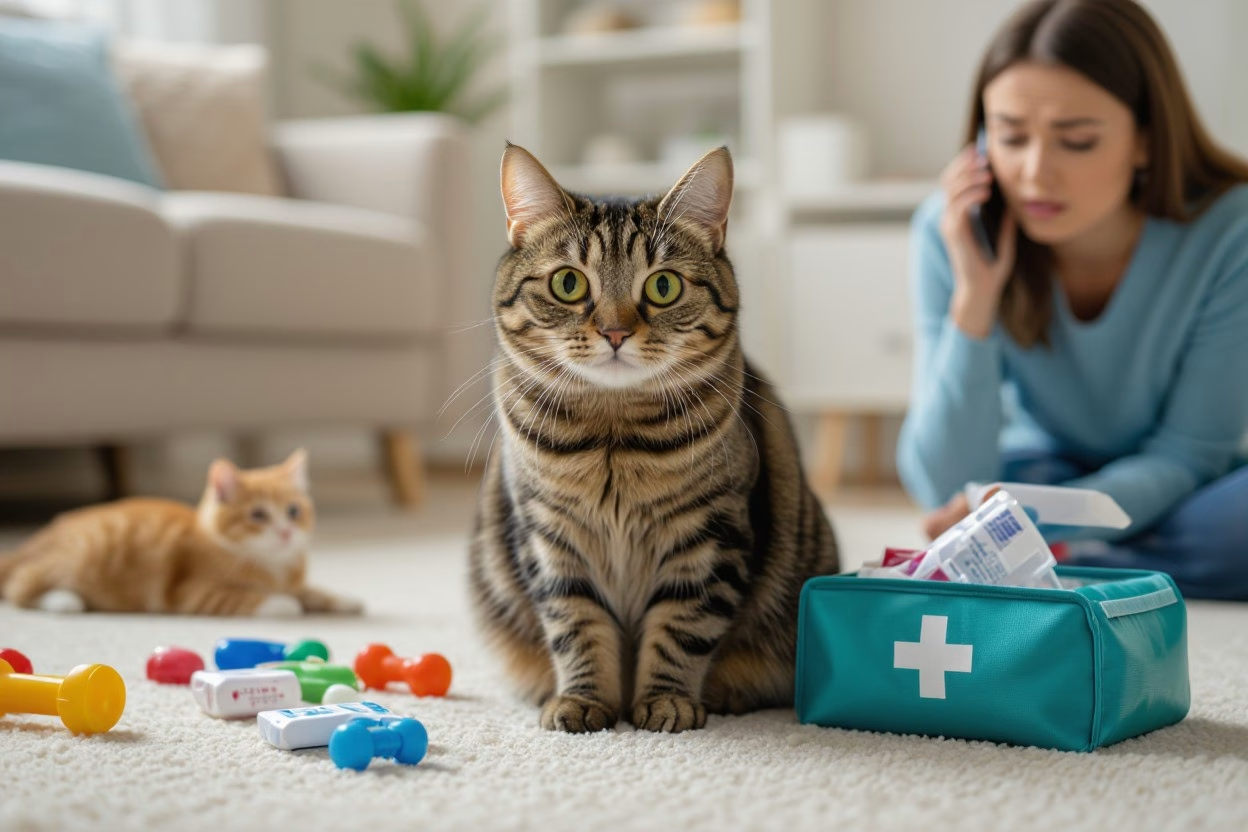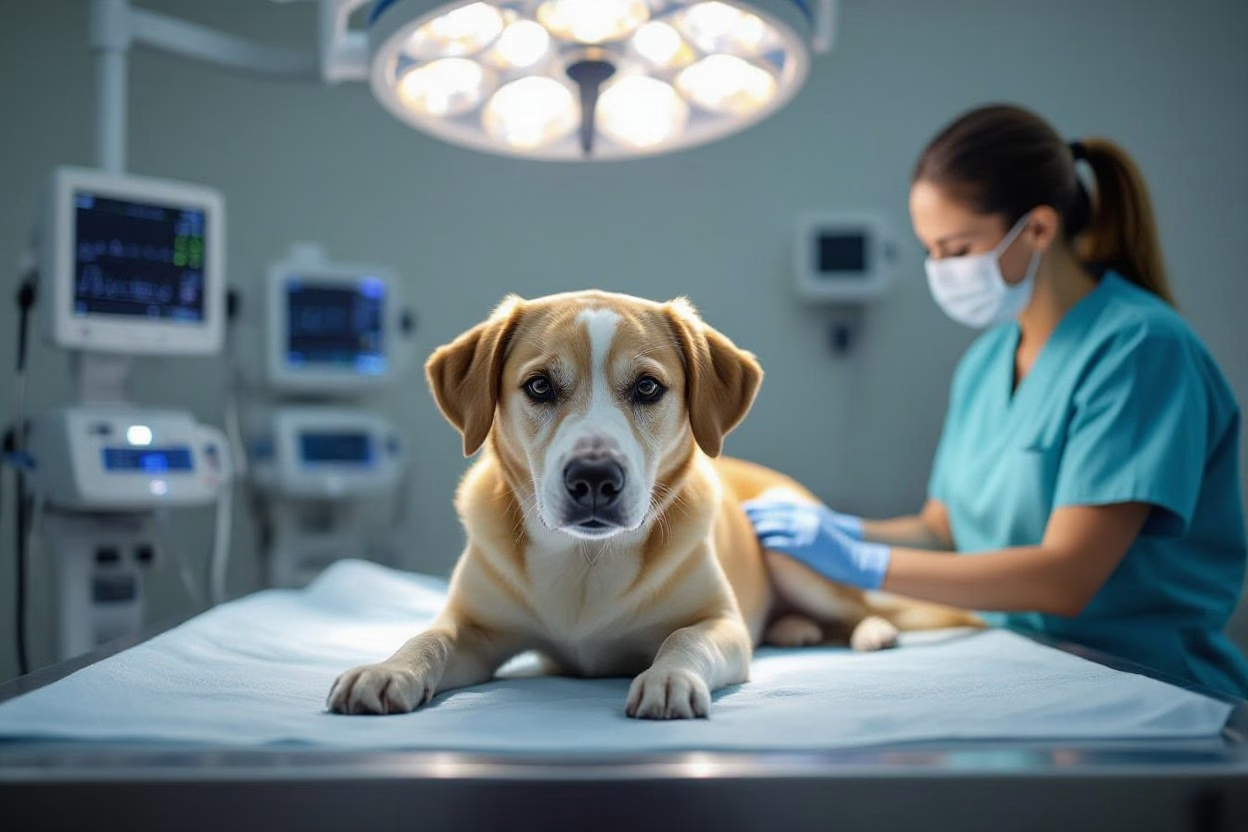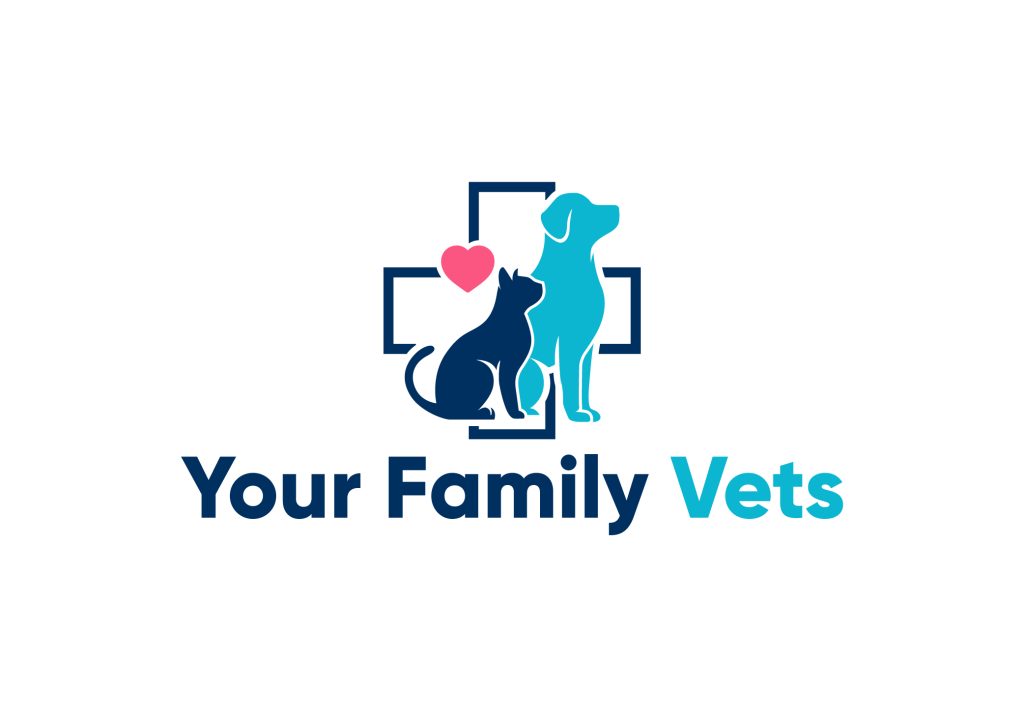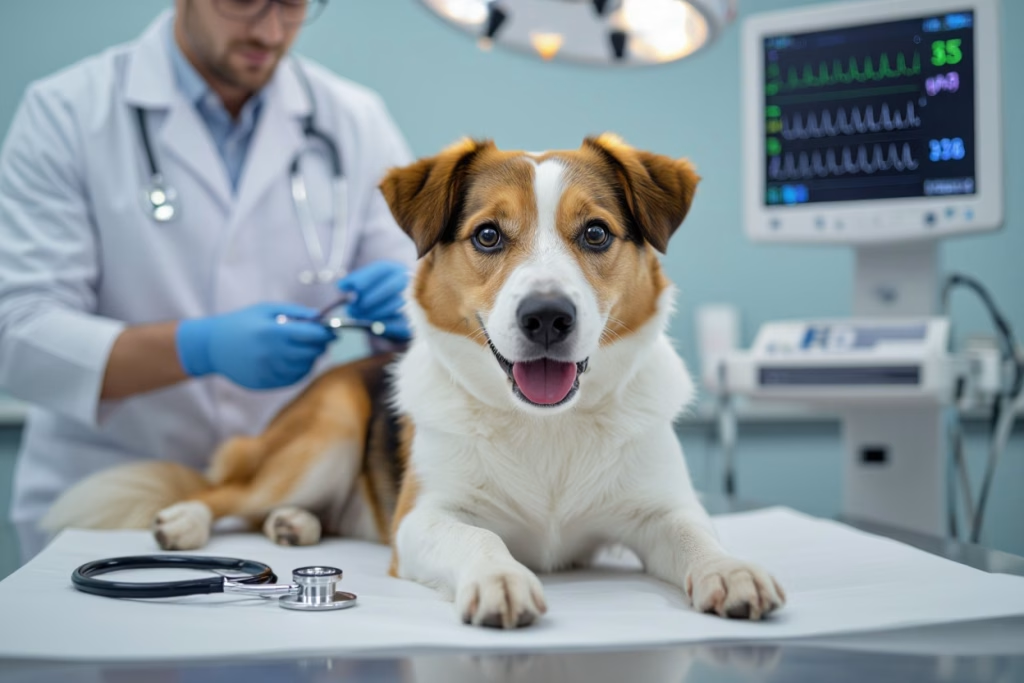Many pet owners face the question “is it a pet emergency?” and need clear guidance: if your pet is struggling to breathe, collapsing, having seizures, or bleeding heavily, these are emergency signs and you should seek help immediately. Learn the common symptoms of a pet emergency and signs your dog needs emergency care, so you know how to tell if it’s a vet emergency. If you search “urgent vet near me” or need an emergency vet in Yorkshire, Your Family Vets in Harrogate, Knaresborough and York offers urgent and out‑of‑hours support—call us right away.
Defining the Line Between Panic and Urgency
Panic often comes from not knowing whether a symptom will worsen; you should treat as urgent when you see rapid deterioration such as prolonged collapse, laboured breathing, uncontrolled bleeding, or a sudden distended abdomen. Seizures lasting over 5 minutes and signs of shock (pale gums, cold limbs) need immediate care. Cases like GDV/bloat can progress from normal to life‑threatening in 1–3 hours. If you ask “is it a pet emergency,” contact Your Family Vets in Harrogate, Knaresborough or York for urgent guidance.
Recognizing severe symptoms that demand immediate action
Watch for clear red‑flag signs: difficulty breathing, collapse, continuous vomiting/diarrhoea with blood, severe bleeding, inability to stand, and suspected poisoning (chocolate, xylitol, grapes, human meds). Seizures over 5 minutes or multiple seizures in an hour, and a rapidly swollen, hard abdomen are emergencies. Note timing—vomiting and not drinking for >24 hours or sudden cessation of urination also require prompt assessment at an emergency vet in Yorkshire.
Understanding why some situations can’t wait for a scheduled appointment
Internal bleeding, toxin ingestion and evolving shock can appear subtle at first yet worsen fast; early interventions like IV fluids, antidotes or surgery change outcomes. Antidotes for toxins are most effective within hours, and surgical conditions such as GDV need treatment within the first few hours to reduce mortality. Contact Your Family Vets Harrogate or York immediately if you suspect these signs so you can get triage and treatment without delay.
Emergency diagnostics—blood tests, radiographs or ultrasound—often start within minutes of arrival and guide lifesaving steps: IV fluids, anti‑toxins (where applicable), blood transfusion or emergency surgery. For example, xylitol ingestion can cause hypoglycaemia within 30–60 minutes and liver damage later, so early decontamination and monitoring at an urgent vet can prevent irreversible harm. Use Your Family Vetsout‑of‑hours service or call for advice if you’re unsure.
The Alarm Bells: Top Emergency Symptoms in Cats and Dogs
Watch for sudden, severe changes: struggling to breathe, collapse, uncontrolled bleeding, or seizures. Other red flags include persistent vomiting with blood, a hard, bloated abdomen, or signs of poisoning (chocolate, grapes, paracetamol). If you spot any of these, call Your Family Vets immediately — we provide urgent vet care across Harrogate, Knaresborough and York and can tell you if this is a true emergency and what to do next.
Breathing difficulties and signs of choking
Fast, laboured breathing (resting respiratory rate over ~40 breaths/min in dogs), open‑mouth breathing in cats, noisy wheeze, or blue/pale gums signal respiratory distress. Sudden gagging, pawing at the mouth, or drooling suggests choking; if you can see an object, gently remove it but never force a blind sweep. Seek emergency help right away — call Your Family Vets or search “urgent vet near me” for immediate guidance.
Behavioral indicators of distress: seizures, collapse, and more
Seizures present as uncontrolled jerking, paddling, foaming or loss of awareness; collapse can be caused by trauma, heatstroke, or cardiac events. Seizures lasting over 2 minutes or repeated episodes (cluster seizures) and any sudden collapse require emergency assessment. Check gums and breathing and contact an emergency vet in Yorkshire without delay.
Time any seizure and film it if safe — video helps diagnosis. Keep your pet on a flat surface, remove hazards, and don’t put fingers near the mouth. For collapse, note recent toxin exposure, medications, or trauma and bring packaging if possible. If you’re in Harrogate, Knaresborough or York, call Your Family Vets immediately or search “emergency vet Knaresborough” / “urgent vet near me” for out‑of‑hours support.

The Grey Areas: Symptoms That Might Signal an Emergency
Some signs sit between “wait and watch” and “rush to the clinic” — for example, intermittent vomiting, mild limping, or sudden hiding. If your pet shows any sign of rapid deterioration such as collapse, unable to stand, or persistent bleeding, treat as an emergency and call Your Family Vets. For unsure cases use search terms like “is it a pet emergency” or “urgent vet near me” and contact Your Family Vetsin Harrogate, Knaresborough, or York for advice.
Limping and sudden changes in behavior
A limp that prevents weight-bearing often signals fracture, dislocation, or severe soft-tissue injury and needs immediate assessment; mild limps that improve over 24–48 hours can usually wait for an appointment. Sudden aggression, disorientation, or hiding may indicate acute pain, poisoning, or neurological events—if your dog or cat suddenly won’t eat, cries out when touched, or shows rapid change in temperament, call an emergency vet or Your Family Vets right away.
Subtle signs that could indicate serious health issues
Small changes can hide big problems: pale gums, not urinating, prolonged lethargy, or breathing that’s noticeably faster at rest (dogs often >30 breaths/min) can precede collapse or organ failure. A single episode of blood in vomit or stool, or a cat refusing food for 24 hours, warrants prompt evaluation; use symptoms like these to decide whether to seek urgent care at an emergency vet in Yorkshire.
Look for combinations: reduced appetite plus vomiting, or mild limping with lethargy and pale gums often means systemic illness rather than isolated injury. Prepare to bring samples (vomit, stool), any packaging from toxins, and a short timeline of events when you contact Your Family Vets, our Harrogate and York teams triage these grey-area cases and advise whether to come in now or book urgent same-day care.
Your Action Plan: Steps to Take in a Crisis
Spot the danger signs (struggling to breathe, seizure >2 minutes, uncontrolled bleeding >10 minutes) and act: contain the scene, prevent further injury, phone Your Family Vets Harrogate, York or our emergency partners for triage, and prepare to travel immediately if advised. Clear, timed actions, calling, basic first aid, and safe transport — cut deterioration risk and get your pet to help faster when you ask “is it a pet emergency?” or search “urgent vet near me.”
Staying calm and contacting an emergency vet
Take a steady breath, note your pet’s exact symptoms and how long they’ve lasted, then call Your Family VetsHarrogate or York (or search “emergency vet knaresborough” if closer). Tell the receptionist if you see breathing difficulty, collapse, persistent vomiting/diarrhoea >24 hours or suspected poisoning; timings and clear details let the team decide whether to send immediate directions or book urgent assessment.
Preparing for a visit: what to bring and how to transport your pet safely
Bring photo ID, microchip number, a list of medications, recent medical history, and any packaging if poisoning is suspected; pack a towel or blanket, secure carrier for cats, and a crate or harness for dogs. Use a muzzle only if the animal is likely to bite; keep your pet warm and still en route. These items speed diagnosis and treatment once you arrive at Your Family Vets or an emergency vet in Yorkshire.
For injured or immobile pets, slide them onto a flat board or thick blanket to lift—support the head and spine. Apply firm pressure to bleeding for up to 10 minutes with a clean cloth, bring a urine or vomit sample if available, and avoid feeding unless instructed. For large dogs, transport in the back of a vehicle with the carrier secured; for small animals, keep them confined in a carrier with a familiar towel to reduce shock.

Finding Urgent Vet Care in Your Area
If you spot signs your dog needs emergency care—severe breathing difficulty, collapse, or uncontrolled bleeding—search “urgent vet near me” or call Your Family Vets immediately; Harrogate and York clinics offer urgent triage and many same-day assessments, with Knaresborough clients commonly directed to Harrogate for faster access. You’ll be told whether to travel, how to stabilise your pet, and when transfer to an emergency centre is required, so do not wait if symptoms worsen.
Locating Your Family Vets in Harrogate, Knaresborough, and York
Your Family Vets Harrogate clinic functions as the primary urgent-care hub for Knaresborough and surrounding villages, while the York practice covers the city and nearby areas; searching “emergency vet knaresborough” or “emergency vet yorkshire” will point you to the nearest site. Call before you set off so the team can triage your pet’s symptoms, prepare a bay, and minimise waiting—this reduces delays for life-threatening cases.
Understanding out-of-hours procedures and emergency partnerships
Outside clinic hours you’ll be connected to Your Family Vets emergency partner (for example, Vets Now) providing 24/7 phone triage; staff will assess symptoms, give immediate first-aid instructions, and arrange urgent transfer if your pet needs advanced care such as surgery or intensive monitoring. Keep your pet’s microchip number, current meds, and recent history ready to speed decision-making and avoid treatment delays.
On referral, expect rapid diagnostics—X-rays, ultrasound, blood tests—and immediate intervention for conditions like poisoning, trauma, or bloat; Your Family Vets and its partners will discuss treatment options and likely costs before non-emergency procedures, and provide regular updates so you know where your pet is and what to expect during transfer and recovery.
When to Seek Routine Care Instead of Immediate Attention
Differentiate symptoms that need same-day attention from those suited to a booked appointment: if your pet is bright, eating, drinking and mobile, and the issue is stable for 24–72 hours, routine care is appropriate. Conditions like minor skin irritation, a single vomiting episode, or a small superficial wound can wait for a scheduled visit at Your Family Vets Harrogate, Knaresborough or York. For breathing difficulty, collapse, uncontrolled bleeding or severe pain, call an emergency vet immediately.
Identifying non-emergency health concerns
Mild limping while still weight-bearing, occasional sneezing, a single episode of vomiting with normal appetite, minor ear wax or localized itching typically count as non-emergency issues you can monitor. Track changes for 24–72 hours, log appetite, toileting and activity, and book a routine appointment if symptoms persist or slowly worsen. Younger or geriatric pets need earlier assessment if you notice weakness, prolonged vomiting, or inappetence.
Importance of regular veterinary visits for long-term health
Scheduling checks every 6–12 months lets your vet spot problems before they escalate: blood and urine tests can reveal kidney disease, diabetes or thyroid issues early, while dental exams prevent periodontal disease that can lead to systemic infection. Vaccination boosters, parasite control and weight plans reduce future emergency visits; seniors usually benefit from six‑monthly reviews, adults from annual exams.
Your Family Vets uses history, a hands-on exam and targeted diagnostics—bloodwork, urinalysis, blood pressure and dental x‑rays—to create personalised preventive plans. Detecting early kidney changes in cats or mild proteinuria in dogs lets you start diet or medication that can delay progression and lower the chance of an emergency. If you’re unsure, search “urgent vet near me” or call Your Family Vets Harrogate, York or emergency vet Knaresborough to get prompt advice on whether to attend out-of-hours.
Summing up
Drawing together, you should act fast if you spot signs of a pet emergency—severe breathing trouble, collapse, uncontrolled bleeding, seizures, suspected poisoning, extreme pain or sudden deterioration; call Your Family Vets immediately for urgent vet near me support in Harrogate, Knaresborough and York. If you’re unsure, you can contact Your Family Vets out of hours and we’ll assess whether you need emergency vet Yorkshire care or advice. Trust your judgment: early action can save your pet.
FAQ
Q: Is it a pet emergency — how can I tell if this is a vet emergency?
A: Every owner has moments of panic — is it a pet emergency? Ask whether your pet is in severe pain, having trouble breathing, collapsing, or deteriorating quickly. Anything causing severe pain, breathing difficulty, collapse, uncontrolled bleeding or sudden, fast decline should not wait. If the problem can’t safely wait until the next day (for example severe vomiting with blood, repeated seizures, or suspected poisoning), treat it as urgent and seek help. For milder, ongoing issues (arthritis, chronic skin problems, slight appetite change) book a routine appointment. If you’re searching “is it a pet emergency” or “how to tell if it’s a vet emergency,” call us and we’ll assess the situation.
Q: What are the top emergency signs in dogs and cats that need immediate vet care?
A: Signs your dog or cat needs emergency care — call a vet immediately if you notice any of these symptoms: • Struggling to breathe, choking, noisy breathing • Seizures or sudden collapse • Hit by a car or serious trauma • Repeated vomiting or diarrhoea for over 24 hours or any with blood • Bleeding that won’t stop • Not eating, drinking or passing urine • Rapidly swollen, bloated or hard stomach • Unable to stand or extremely weak • Suspected poisoning (chocolate, grapes, human meds, slug pellets) • Difficulty giving birth • Eye injury, bulging eye or sudden blindness • Severe allergic reaction (facial swelling, hives, drooling). If you’re unsure, call Your Family Vets right away — we’ll assess whether your pet needs urgent care. Keywords people search: signs your dog needs emergency care, dog or cat emergency symptoms, symptoms of a pet emergency.
Q: I’m not sure — what other signs could mean an emergency?
A: Some emergencies are more subtle. Call promptly if your pet is: • Limping and not putting weight on a limb • Crying out when touched or guarding a body area • Suddenly hiding, aggressive or showing major behavioural change • Pale gums, very tacky gums, or cold ears/paws (signs of shock) • Excessive shaking or panting without being hot • Sudden, unexplained lethargy or weakness. If your pet just seems wrong and you can’t explain why, trust your instinct and get in touch. Searching “how to tell if it’s a vet emergency” or “urgent vet near me” and calling us will get you immediate guidance.
Q: What should I do right now if I suspect an emergency?
A: Stay calm and act quickly: • Call your nearest Your Family Vets clinic so we can triage and advise — we’ll tell you whether to come straight in or stabilise at home • Transport your pet safely (secure carrier for cats, blanket or board for injured dogs) • Do not give human medication unless instructed by a vet • Bring any packaging if poisoning is suspected • If bleeding, apply firm pressure with a clean cloth; for breathing difficulty keep pet calm and upright • For seizures, clear hazards and time the seizure; do not put anything in the mouth. In a life-threatening situation or if you’re searching “urgent vet near me” or “emergency vet yorkshire,” call Your Family Vets Harrogate or Your Family Vets York immediately — we’re here to help and will tell you the fastest next step.
Q: Where can I find emergency vet care in Harrogate, Knaresborough and York, and what are your out-of-hours arrangements?
A: Your Family Vets provides urgent care for Harrogate, Knaresborough and York. Our Harrogate clinic is a short drive from Knaresborough and we also serve York residents — full clinic addresses and phone numbers are listed on the Your Family Vets website and via our clinic pages. Regular opening hours are shown online; if you need help outside those hours, calls are routed to our on-call team or to our partnered emergency provider who covers out-of-hours urgent cases in Yorkshire (for example Vets Now). If we are closed and your pet is life‑threateningly unwell, follow on-call instructions or proceed to the nearest emergency provider. Still unsure if it’s an emergency? Don’t take chances — call Your Family Vets Harrogate or Your Family Vets York now and our team will listen, assess and guide you.

